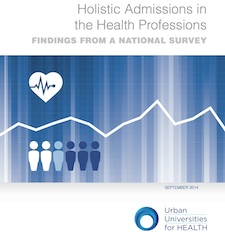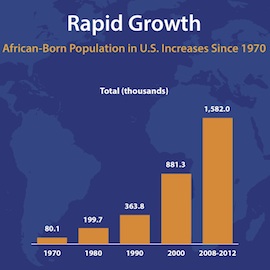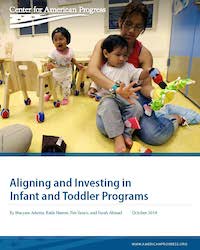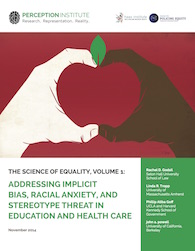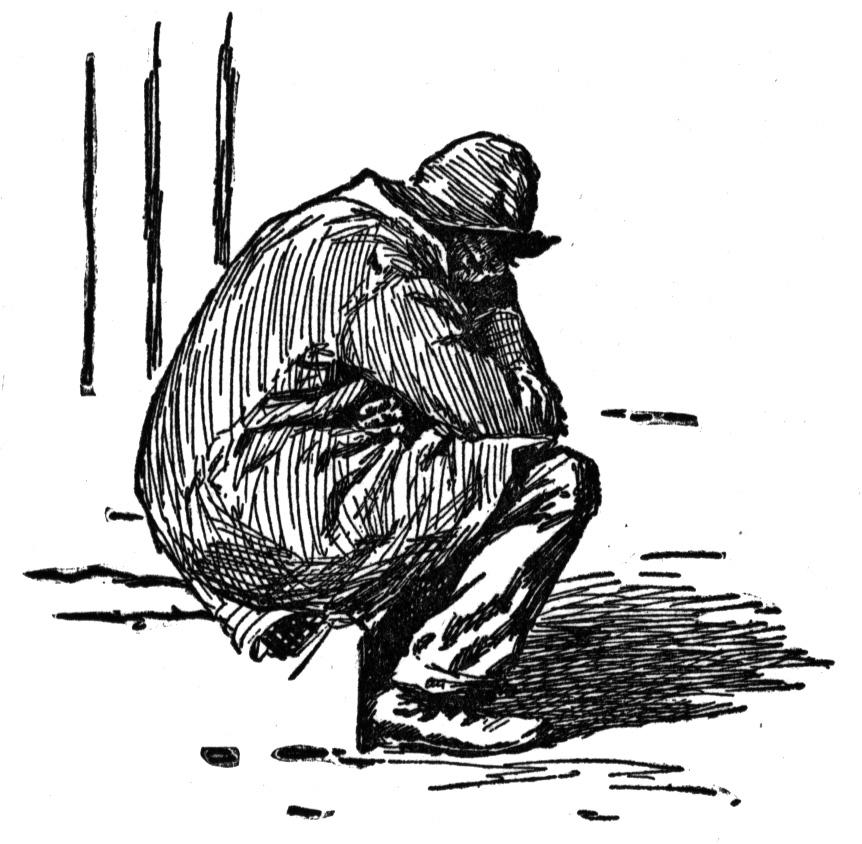A Holistic Admission Process Produces Better Results for Health Profession Schools
A holistic admissions process that takes into account more than an applicant's grades and test scores, achieves an entering class that is more diverse and in most cases there is no change in measures of academic quality, student academic performance, or student retention.
University Study Links Racial Discrimination to Mental Health Problems
The study found that African Americans and Caribbean-born Blacks who experience discrimination in the United States are at a substantially higher risk for anxiety, depression, substance abuse, and other mental disorders.
The African-Born U.S. Population Is a Highly Educated Group
A new Census Bureau study finds that more than 40 percent of the African-born U.S. population has graduated from a four-year college, compared to 28 percent of the total foreign-born population, and 29 percent of the entire U.S. adult population.
Study Finds Declining Support for Diversity Among Whites Who Are Informed of Demographic Trends
A study by psychologists at the University of California, Los Angeles, finds declining support for multiculturalism and diversity among Whites who were informed that they will no longer be a majority of the population by 2050.
Study Calls for Anti-Poverty Programs Focused on the Very Young
A new report from the Center for American Progress recommends that in order to best deal with issues of economic inequality, the United States should refocus social policy on programs for infants and toddlers.
Blacks at For-Profit Colleges: Poor Outcomes and Large Amounts of Debt
Blacks make up a disproportionate percentage of students at for-profit schools and only 20 percent complete their degree programs. Many take on large amounts of debt that they can't easily repay.
Academic Study Finds Political Animosity Now Exceeds Racial Hostility
Hostile feelings for people of the other political party now exceed racial biases and dislikes, according to a study conducted by researchers at Stanford University and Princeton University.
University Research Finds Black Parents Benefit When Their Children Are in Head Start
A new study by researchers at Northwestern University shows that the parents of children who participate in Head Start had higher levels of educational attainment by the time their children were age 6. The effect was particularly significant for African American parents.
A New Study Shows the Moderating Role of Religiosity on Black Suicides
A new study led by Rheeda Walker, an associate professor of psychology at the University of Houston, finds that religion may be a major factor in explaining the lower suicide rate among African Americans.
Survey Finds Large Unmet Need for Afterschool Programs Among African Americans
A new survey conducted for the Afterschool Alliance finds that 2.4 million African American children participate in formal afterschool programs but another 4.5 million would participate if safe afterschool programs were available in their communities.
The Persisting Racial Gap in College Student Graduation Rates
At the nation's largest universities, the Black student graduation rate of 45 percent is 21 percentage points lower than the graduation rate for White students. This gap has existed for decades and shows no sign of improvement.
African Americans Still Significantly Underrepresented at U.S. Medical Schools
In 2014, African Americans were 8.1 percent of all applicants to U.S. medical schools. Blacks were 6.9 percent of the students who matriculated at U.S. medical schools in 2014.
Major Progress in Black Student Graduation Rates at Top-Ranked Colleges and Universities
A decade ago, only five of the nation's highest-ranked colleges and universities had Black graduation rates of 90 percent or more, compared to 15 today. In addition, many of these top schools have narrowed the racial graduation rate gap.
Study Finds Poor Communication Between African American Mothers and Daughters on HIV/AIDS
African Americans account for 57 percent of new HIV/AIDS cases among women. But a focus group study found that many African American mothers and their daughters do not talk about the issue.
The Economic Price Tag of Racial Inequality
A new study by the Center for American Progress estimates that if educational gaps were closed and incomes rose to coincide with the educational gains, the gross domestic product would grow by $2.3 trillion by the year 2050.
Study Finds Community College Helps Minority Students on the Road to a Bachelor’s Degree
The authors found that for disadvantaged students, who represent the majority of community college-goers, enrolling at a community college has a modest positive effect on their likelihood of completing a bachelor’s degree.
Tracking Black Student Graduation Rates at HBCUs
At half the HBCUs in our survey, the Black student graduation rate is 34 percent or lower. There are seven HBCUs in our survey where less than one in five entering Black students earn a bachelor’s degree within six years.
Why Discrimination Persists in the “Post-Racial Society”
The authors of the report from the Perception Institute conclude that although many people are not outwardly racist, they continue to harbor racist stereotypes that impact their behavior.
Students From Sub-Saharan Africa at U.S. Colleges and Universities
In the 2013-14 academic year, there were 31,113 students from sub-Saharan Africa enrolled at colleges and universities in the United States. They made up 3.5 percent of the 886,052 foreign students at U.S. colleges and universities.
The Racial Gap in Home Computer Ownership and High-Speed Internet Access
The data shows that 66.3 percent of African America households have a desktop or laptop computer. More than 81 percent of White households have a desktop or laptop computer.
Tracking U.S. College Students Who Study Abroad in Sub-Saharan Africa
More than 289,000 American students studied at foreign institutions of higher education during the 2012-13 academic year. Of all U.S. students studying abroad, 13,411, or 4.6 percent, attended universities in sub-Saharan Africa.
Rising Black Student Graduation Rates at Flagship State Universities
Among the flagship state universities a decade ago, only the University of Virginia had a Black student graduation higher than 70 percent. Now there are 13 flagship state universities at which the Black student graduation rate is 70 percent or higher.
New Study Examines Racial Disparity in Maternal Mortality
The researchers stated that factors such as gestational age, fetal survival rate, duration of hospital stay, cesarean delivery rate, and lack of prenatal care contributed to the higher incidence of maternal mortality among Black mothers.
Sub-Saharan Nations Sending the Most Scholars to Teach at U.S. Colleges and Universities
In the 2012-13 academic year there were 2,132 scholars from sub-Saharan African nations teaching at U.S. colleges and universities. This is up nearly 13 percent from the the 2011-12 academic year.
University Study Finds Link Between Sedentary Work and Obesity for Black Women
The research by scientists at the Washington University School of Medicine in St. Louis found no correlation for sedentary work and obesity in men and a far smaller correlation for White women.
Center for African American Research and Policy Examines “Intersectionality”
The Journal of Progressive Policy & Practice, recently released a special issue on intersectionality titled, “Informing Higher Education Policy & Practice Through Intersectionality.”
Strategies for Increasing the Number of Black Students in STEM Fields
Andrew C. Campbell, a professor of biology at Brown University, took 50 minority students from 15 different colleges and universities on a retreat and asked them for ideas to address the shortfall of Black and other minority students in STEM disciplines.
Addressing the Lack of Racial Diversity in Environmental Science
Environmental and earth sciences have among the largest racial shortfalls in faculty positions in higher education. Minorities make up only 11 percent of the total faculty in environmental sciences.
Why Do African Americans Avoid Engineering Degree Programs?
Although African Americans may be academically well-prepared for an engineering curriculum various factors may contribute to the feeling of “not fitting in” or a “lack of belonging.” A new study seeks to identify factors that produce such concerns and to recommend ways to eliminate them.
Doctoral Degree Awards by HBCUs in 2013
The report shows that 396 doctorates were awarded by historically Black colleges and universities in 2013. Howard University in Washington, D.C., led the HBCUs, granting 96 doctoral degrees in 2013.
Pew Research Center Study Shows a Widening Racial Wealth Gap
A widening racial wealth gap impedes the ability of Black families to pay for the college education of their children and grandchildren. Since the Great Recession, the racial wealth gap has expanded significantly.
Greatest Gains in Black Educational Progress Occurred After Major Wars
A new study by John Rury, a professor of education at the University of Kansas and Derrick Darby a professor of philosophy at the University of Michigan, finds that the educational prospects for African Americans improved dramatically immediately after three major wars.
Academic Disciplines Where African Americans Earned No Doctoral Degrees in 2013
According to the National Science Foundation, there were 18 academic fields where none of the doctorates awarded in 2013 went to an African American. More than 1,800 doctorates were awarded in these fields.
Ranking the Top Law Schools by Their Percentage of Black Students
At none of the 15 highest-ranked law schools do Black enrollments reach 9 percent. Harvard Law School ranks first with Black enrollments of 8.7 percent.
University Study Finds Significant Reductions in Racial Health Care Disparities
The study, by researchers at Brown and the University of Pittsburgh, examined 12 million acute care hospitalizations for patients who had a heart attack, heart failure, or suffered from pneumonia and compared treatments received by patients by race and ethnicity.
Black Youth With Educated Parents May Be More Likely to Be at Risk for...
Generally, a high degree of parental education has been found to reduce the risk for depression among youths. But this study finds that the general wisdom does not hold true for Black youth.

